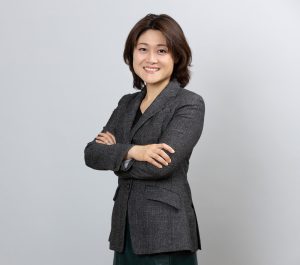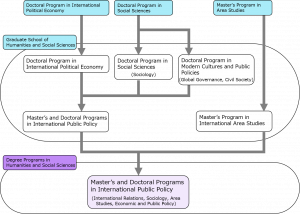A message from the Chair of IPP
To anyone interested in our International Public Policy Degree Programs
 It is my greatest pleasure to welcome you to Master’s and Doctoral Programs in International Public Policy. I wish you all the best for your new academic year. And if you are considering applying to this programme, thank you for visiting our website.
It is my greatest pleasure to welcome you to Master’s and Doctoral Programs in International Public Policy. I wish you all the best for your new academic year. And if you are considering applying to this programme, thank you for visiting our website.
Our International Public Policy Programme has a high degree of specialisation in various fields related to international public policy, such as public policy studies, sociology, cultural anthropology, international relations, economics, political science, law and area studies, as well as an interdisciplinary nature that cuts across these fields. While taking advantage of both this specialisation and interdisciplinarity, we aim to nurture researchers who have acquired the practical skills to understand the various problems facing contemporary society and derive appropriate solutions, as well as professionals who can utilise their research skills. In order to achieve this objective, a meticulous guidance system is implemented by multiple faculty members to support our graduate students in their research.
Through your research life in this programme, we hope that you will think through what you are truly interested in from multiple angles and vigorously pursue it. To this end, we encourage you to actively communicate with the faculty members, who have a wide range of experience and expertise, and to acquire a multifaceted perspective. The time you spend working together with your fellow graduate researchers will surely be a treasure for life. And when you have the opportunity to work in the world of research, in government, municipalities, international organisations, financial institutions, media, NGOs and NPOs, as many graduates of this programme have done, we hope that you will make the most of the personal network you have gained from this programme.
We sincerely hope that you will enjoy a fulfilling research life in our programme.
Chair of Master’s and Doctoral Program in International Public Policy
Atsuko HIGASHINO
Master’s and Doctoral Program in International Public Policy
Outline
Master’s and Doctoral Program in International Public Policy consists of the fields of International Relations, Sociology, Area Studies, and Economics and Public Policy. Through highly specialized and interdisciplinary education and research guidance in each field, this degree program fosters individuals with international-level research skills and the problem-solving abilities necessary for international public policy practice.
In the field of international relations, students study international relations theory, international security theory, international law, domestic political economy, political diplomacy, and international relations related to the United States, Europe, Russia and Eastern Europe, China, and contemporary Japan. Students also conduct fieldwork-based research on globalization, regional development, and immigration.
The sociology department conducts research on social issues and cultural theory. Social issues include health care, education, family, community problems, and deviant behavior, while cultural theory studies contemporary representational culture, knowledge, history, communication, organization, and urban and sports theory.
In the area of Area Studies, students engage in “area studies” that aim for an intrinsic and comprehensive understanding of a specific nation or community, and acquire international, interdisciplinary, and practical skills. Students aim to become highly-skilled professionals with broad perspectives and experts in specific regions who can proactively work on their own initiative and play an active role in the field of international contribution and international cooperation.
In the field of economics and public policy, students conduct research to analyze and evaluate actual policies using theories, basic concepts, and approaches from economics, political science, law, and other disciplines. In particular, the program aims to improve students’ ability to formulate policies and to analyze the effects of implementation and associated development policy issues.
History
The origins of this multidisciplinary degree program are found in the Graduate School of International Political Economy, the Graduate School of Social Sciences, and the Graduate School of Area Studies. In 2001, the university’s organizational reform established the Graduate School of Humanities and Social Sciences, with the Graduate School of International Political Economy as the Department of International Political Economy and the Graduate School of Social Sciences as the Department of Sociology in the Social Sciences and the Department of Global Governance and the Department of Civil Society in the Department of Contemporary Culture and Public Policy. Subsequently, in a reorganization in 2008, these three majors were merged into the Department of International Public Policy. In the same year, the Graduate School of Area Studies was placed within the Graduate School of Humanities and Social Sciences as the Department of International Area Studies.
The 2020 organizational restructuring merged the Department of International Public Policy and the Graduate School of International Area Studies into the current International Public Policy degree program.

